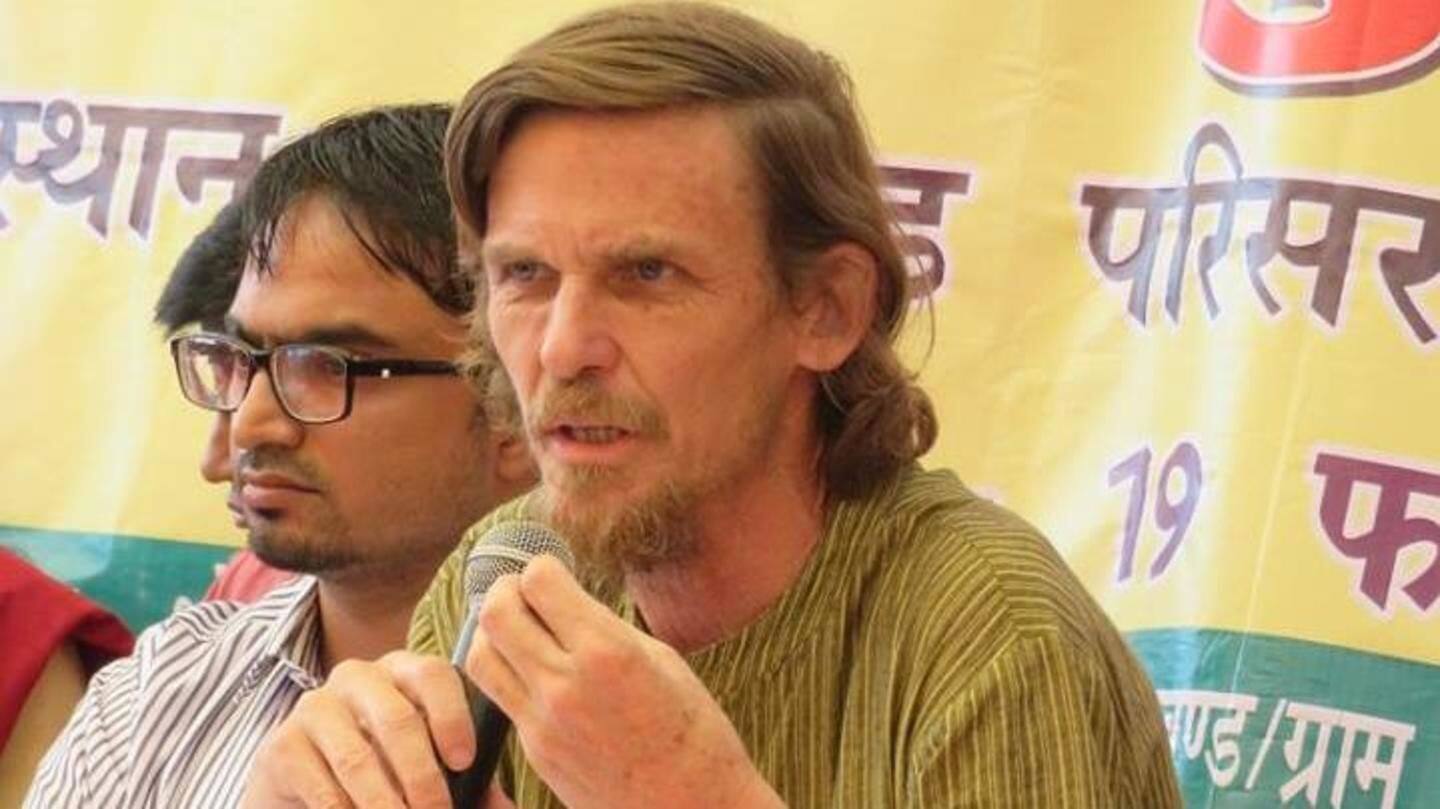
Modi-govt needs to shed 'obsession' with economic-growth: Economist Jean Dreze
What's the story
The Narendra Modi government needs to shed its "obsession" with economic growth and take a broader view of what development is about, argues noted economist Jean Dreze. Author of a number of books on development and policies in India, Dreze also feels that the Center is "abdicating" its responsibilities in many sectors and handing them over to the corporate sector or to state governments.
Interview
Modi govt should take broader-view of what development is: Dreze
In an interview with PTI, Dreze said, "The government should shed its obsession with economic growth." He added, "Economic growth can certainly contribute to development, in the sense of a widely shared improvement in the quality of life, but it does not go very far on its own," added Dreze, who served as a member in the former UPA government's National Advisory Council.
Development
Universal quality education, the most important foundation of development
The Belgian-born Dreze, now an Indian citizen, held that development also requires wide-ranging public action in fields like education, health, nutrition, social security, environmental protection, public transport, etc. "Universal quality education is all the more important in India, because of the country's extreme social inequalities. Yet five years have passed without any major initiative in the field of elementary education," the economist added.
Demonetization
Economy managed to remain close to 7.5% despite demonetization
Dreze said the underprivileged haven't had a particularly good time in the last five years, claiming demonetization hit the financially-weaker section. Noting that despite demonetization, the economy somehow managed to remain close to the trend growth rate of 7.5% around which it has hovered for much of the last 15 years, he said rural wage rates have more or less stagnated in real terms.
Information
Women's workforce participation in India very low
"Women's workforce participation also remains very low (in India)...among the lowest in the world," Dereze said. He added stagnated rural wage rates and low women's workforce participation are two important signs that rapid economic growth is failing to generate adequate employment and income opportunities.
Other factors
Poverty estimates are way out of date, claims Dereze
On financial inequality and unavailability of government data in the country, Dereze said this was "just one symptom" of the "deterioration of the statistical" system in India, and of the government's tendency "to suppress inconvenient facts". "Many other examples can be given. Poverty estimates, for instance, are way out of date, with the most recent official estimates going back to 2011-12," he added.
Social policy
Dereze says Modi government turned its back on social policy
Dereze noted the gap between the last two National Family Health Surveys, in 2005-06 and 2015-16, was as long as 10 years, in comparison with two-three years for other South Asian countries. "There have been no significant initiatives related to education, health, nutrition, social security or related matters in the last few years, with the partial exception of Swachh Bharat Mission," he added.
Information
No action worth-the-name even where govt had legal obligations
"Even where the government has legal obligations, as with maternity entitlements under the National Food Security Act, there has been no action worth the name. That, too, is bad news for poor people who depend a great deal on public services and social-support," Dereze said.
Aadhaar system
Dereze on govt's claims that Aadhaar reduced corruption in PDS
Dreze claimed there's no evidence that Aadhaar reduces corruption in Public Distribution System. "On the contrary, in Jharkhand at least, it seems to have led to more rather than less corruption. One reason for this is...when people fail the biometric test, their food rations are appropriated by the PDS dealers," he claimed, advocating "smart cards" like those used in Tamil Nadu and Himachal Pradesh.